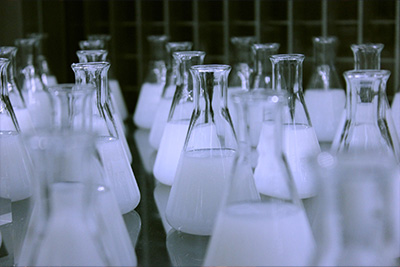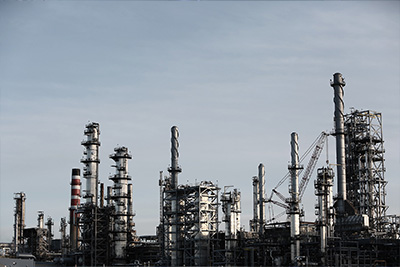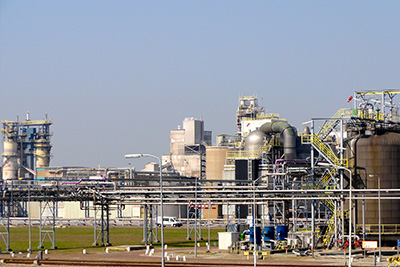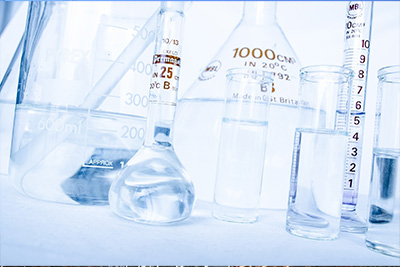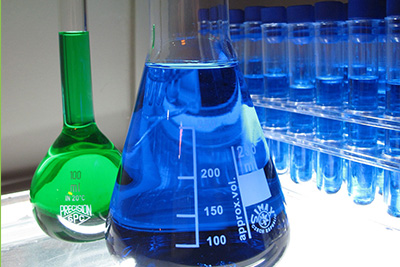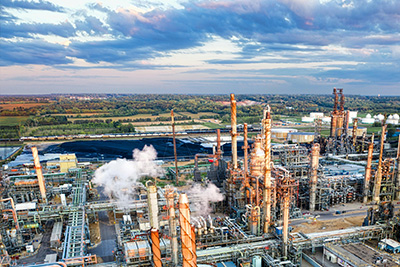-
![Exploring Innovati···]() 2024-12-07 Exploring Innovations in Methyltin M···
2024-12-07 Exploring Innovations in Methyltin M···This study investigates new formulations of methyltin mercaptides for eco-friendly PVC stabilization. These innovations aim to enhance the environmental sustainability of PVC materials by reducing harmful emissions and improving long-term stability. The research focuses on optimizing the composition of methyltin mercaptides to achieve better performance while minimizing ecological impact. Results indicate promising improvements in stabilization efficiency, suggesting potential for widespread adoption in the industry.
read more > -
![The Impact of Proc···]() 2024-12-07 The Impact of Processing Conditions ···
2024-12-07 The Impact of Processing Conditions ···The article examines how different processing conditions affect the efficiency of methyltin mercaptide as a stabilizer in PVC extrusion. The study reveals that factors such as temperature, screw speed, and barrel pressure significantly influence the performance of methyltin mercaptide. Optimal processing parameters are crucial for maximizing the stabilizing effect, enhancing the overall quality and durability of the extruded PVC products.
read more > -
![Methyltin Mercapti···]() 2024-12-07 Methyltin Mercaptides Contribution t···
2024-12-07 Methyltin Mercaptides Contribution t···The study explores the role of methyltin mercaptides in improving the ultraviolet (UV) resistance of both flexible and rigid polyvinyl chloride (PVC) products. By incorporating these additives, the degradation caused by UV exposure is significantly reduced, thereby enhancing the overall durability and longevity of PVC materials. This research highlights the effectiveness of methyltin mercaptides as a protective agent, offering a promising solution for applications requiring prolonged exposure to sunlight.
read more > -
![The Role of Methyl···]() 2024-12-06 The Role of Methyltin Mercaptide in ···
2024-12-06 The Role of Methyltin Mercaptide in ···Methyltin mercaptide plays a crucial role in advancing the plastics industry towards achieving the United Nations' Sustainable Development Goals (SDGs). This compound enhances the efficiency and durability of plastic materials, contributing to reduced waste and improved product lifespans. By promoting longer-lasting and more sustainable plastic products, methyltin mercaptide supports environmental sustainability, economic growth, and innovation within the industry. Its use exemplifies how chemical additives can facilitate progress toward key SDGs, including responsible consumption and production, climate action, and sustainable cities and communities.
read more > -
![Assessing the Toxi···]() 2024-12-06 Assessing the Toxicological Effects ···
2024-12-06 Assessing the Toxicological Effects ···This study evaluates the toxicological impacts of methyltin mercaptide, a compound widely used in industrial applications. The research focuses on its potential hazards in occupational settings, aiming to enhance safety measures for workers exposed to this chemical. Through comprehensive analysis, the study identifies key health risks associated with methyltin mercaptide exposure, offering recommendations for improved protective strategies and regulatory standards.
read more > -
![Optimizing the Use···]() 2024-12-06 Optimizing the Use of Methyltin Merc···
2024-12-06 Optimizing the Use of Methyltin Merc···The study explores the optimization of methyltin mercaptide usage in blends with recycled polyvinyl chloride (PVC) to enhance circular economy solutions. By analyzing various ratios and processing techniques, the research aims to improve the mechanical properties and thermal stability of recycled PVC, thereby extending its lifecycle and promoting sustainable practices in plastic recycling. The findings suggest that optimal methyltin mercaptide concentrations can significantly enhance the performance of recycled PVC, making it more viable for reuse in manufacturing processes.
read more > -
![Methyltin Mercapti···]() 2024-12-06 Methyltin Mercaptide and Its Role in···
2024-12-06 Methyltin Mercaptide and Its Role in···Methyltin mercaptides play a crucial role in preventing dehydrochlorination in high-performance PVC compounds. These organotin compounds act as stabilizers, effectively inhibiting the degradation of PVC during processing and over its service life. By forming complexes with HCl, methyltin mercaptides prevent the release of hydrogen chloride, which is responsible for the degradation of the polymer chain. This stabilization mechanism enhances the thermal stability and prolongs the lifespan of PVC materials, making them suitable for various demanding applications.
read more > -
![Thermal Decomposit···]() 2024-12-06 Thermal Decomposition Behavior of Me···
2024-12-06 Thermal Decomposition Behavior of Me···The thermal decomposition behavior of methyltin mercaptide in polyvinyl chloride (PVC) was investigated to understand its impact on industrial processing. The study revealed that the presence of methyltin mercaptide significantly affects the decomposition kinetics and products of PVC. Key findings indicate that during thermal processing, methyltin mercaptide undergoes degradation, leading to the formation of tin-containing compounds and by-products. These results highlight the importance of controlling reaction parameters such as temperature and processing time to mitigate adverse effects on PVC quality. Understanding these decomposition dynamics is crucial for optimizing industrial processes involving tin-based stabilizers in PVC manufacturing.
read more > -
![A Comparative Anal···]() 2024-12-06 A Comparative Analysis of Methyltin ···
2024-12-06 A Comparative Analysis of Methyltin ···This study conducts a comparative analysis of methyltin mercaptide and tin-free stabilizers in Polyvinyl Chloride (PVC) wire and cable applications. The evaluation focuses on thermal stability, electrical properties, and environmental impact. Results indicate that while methyltin mercaptide offers superior thermal stability, tin-free stabilizers present a more environmentally friendly option with comparable performance in certain electrical properties. This analysis provides insights for manufacturers aiming to balance performance and sustainability in PVC compound formulations.
read more >


